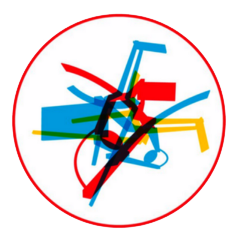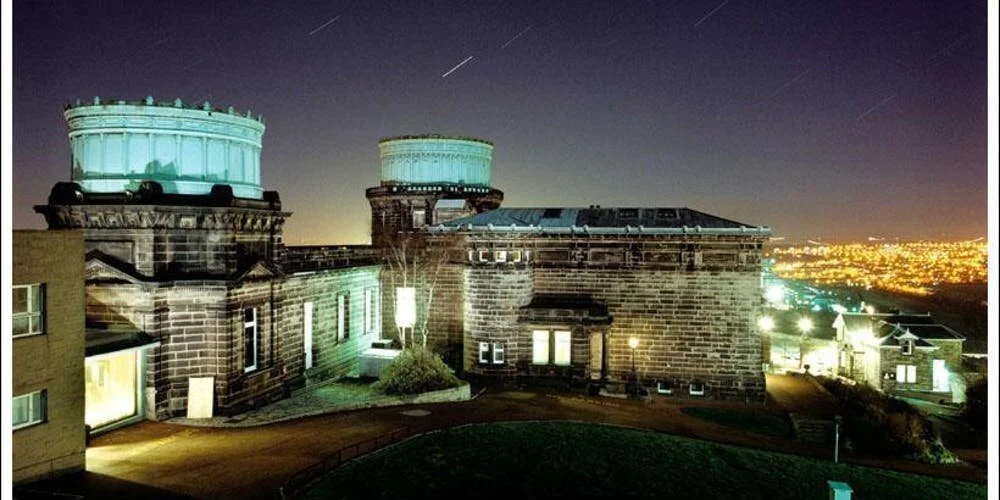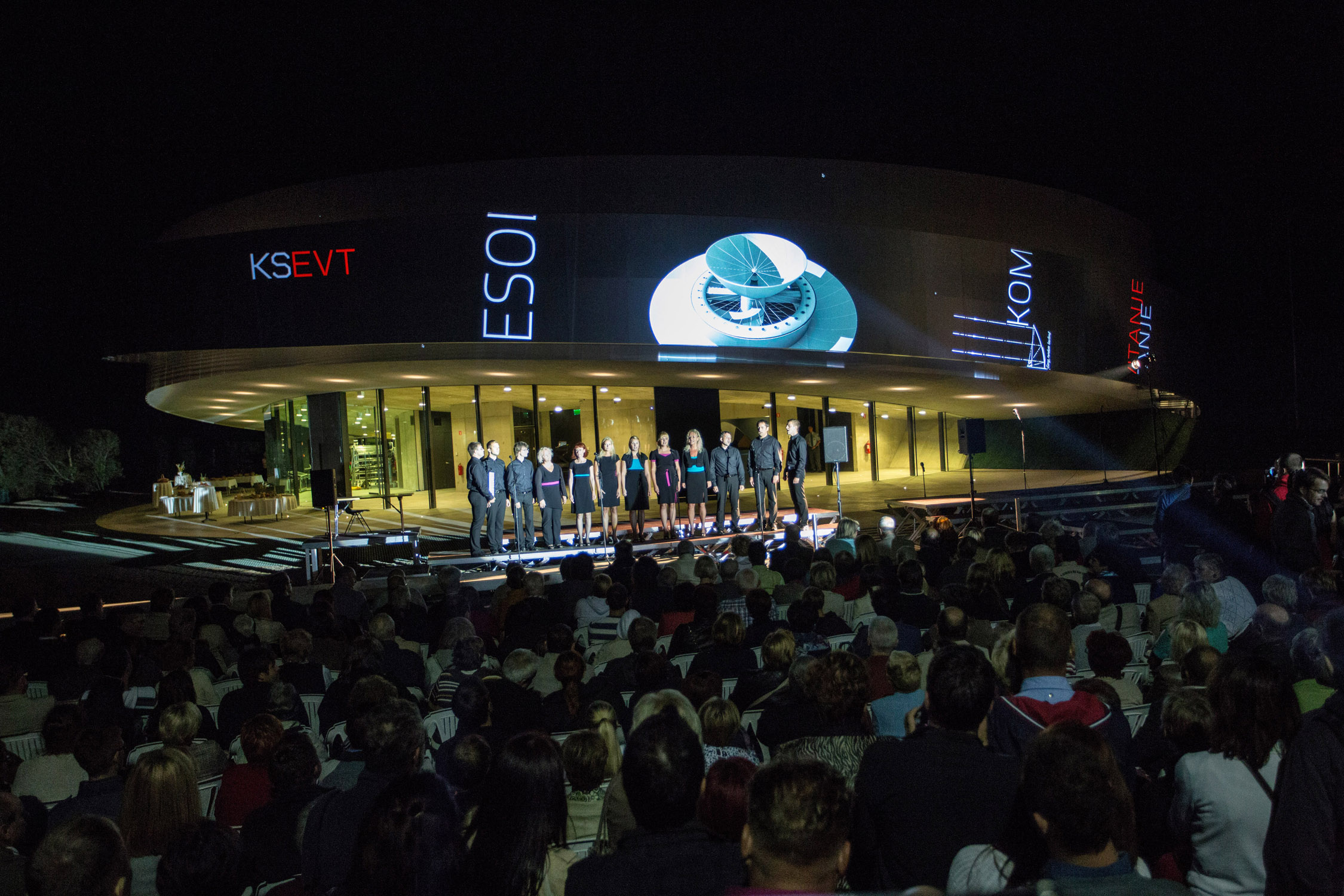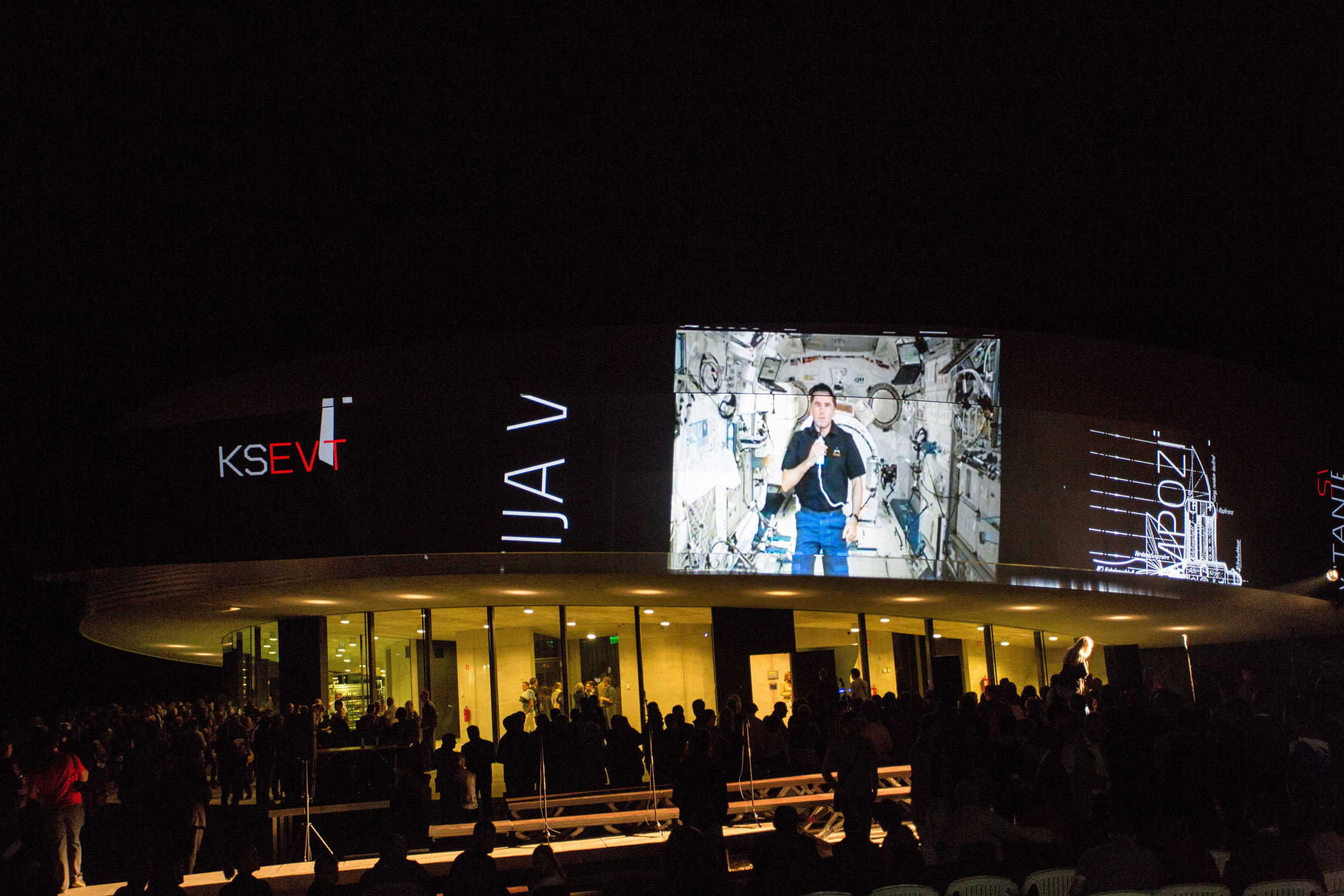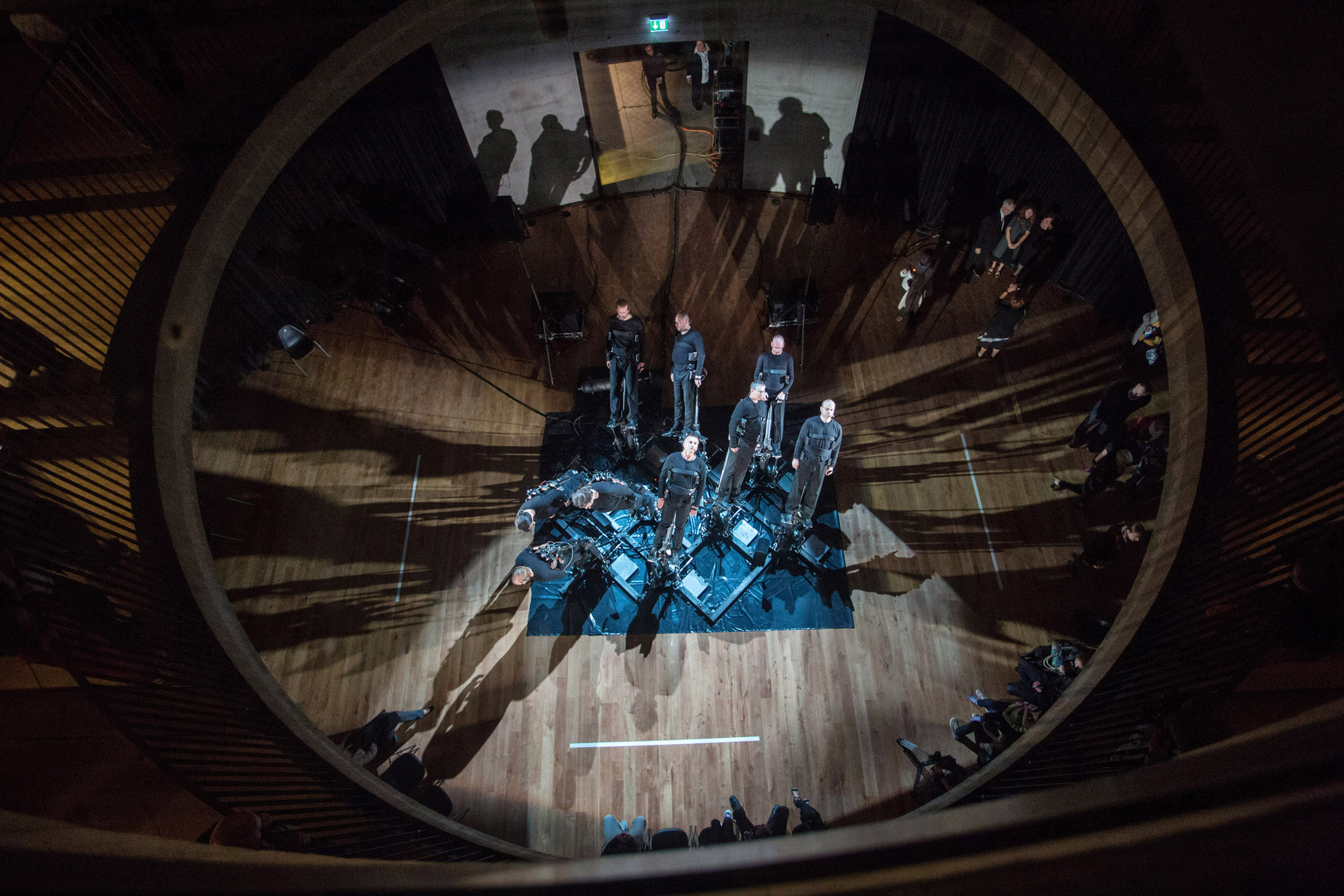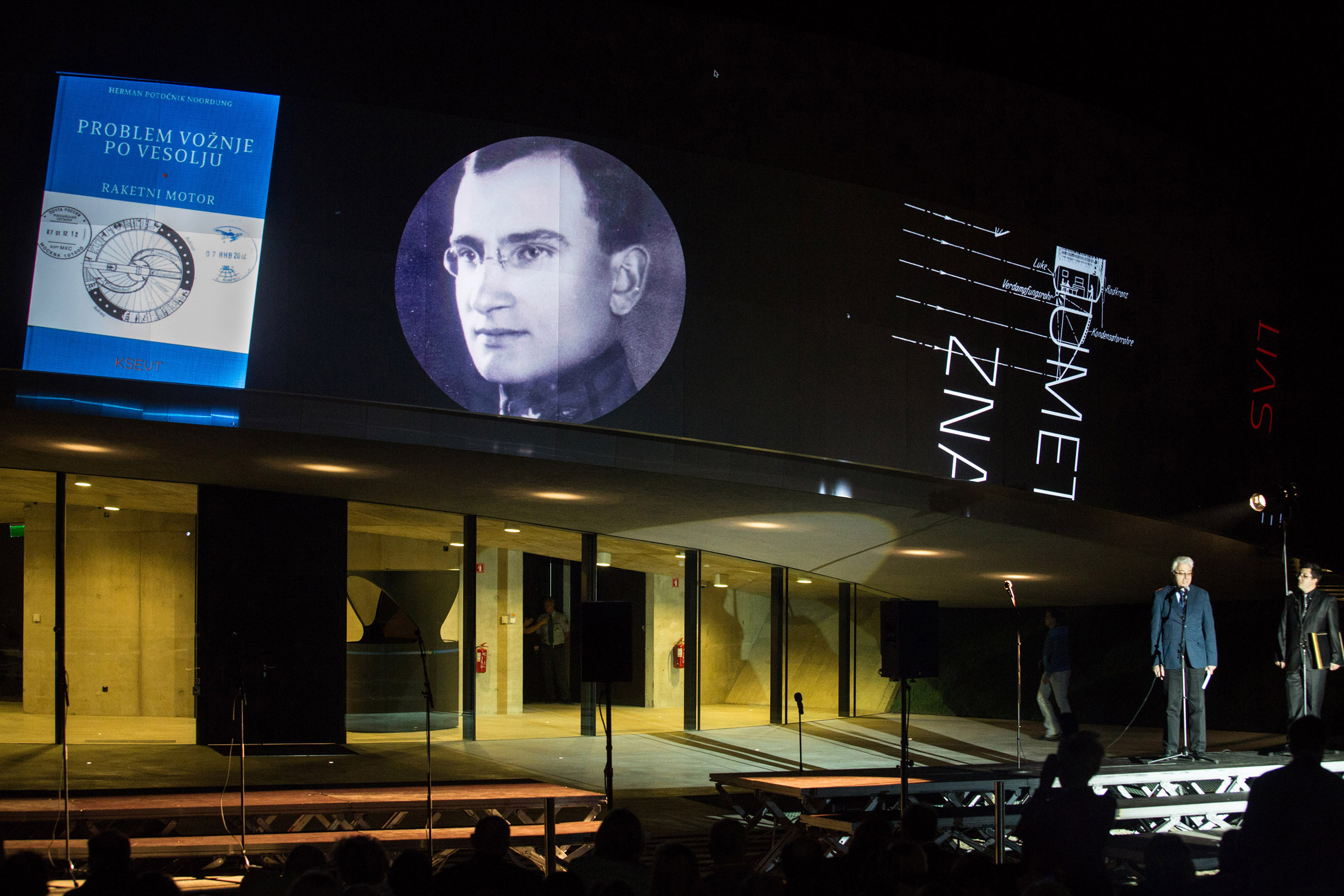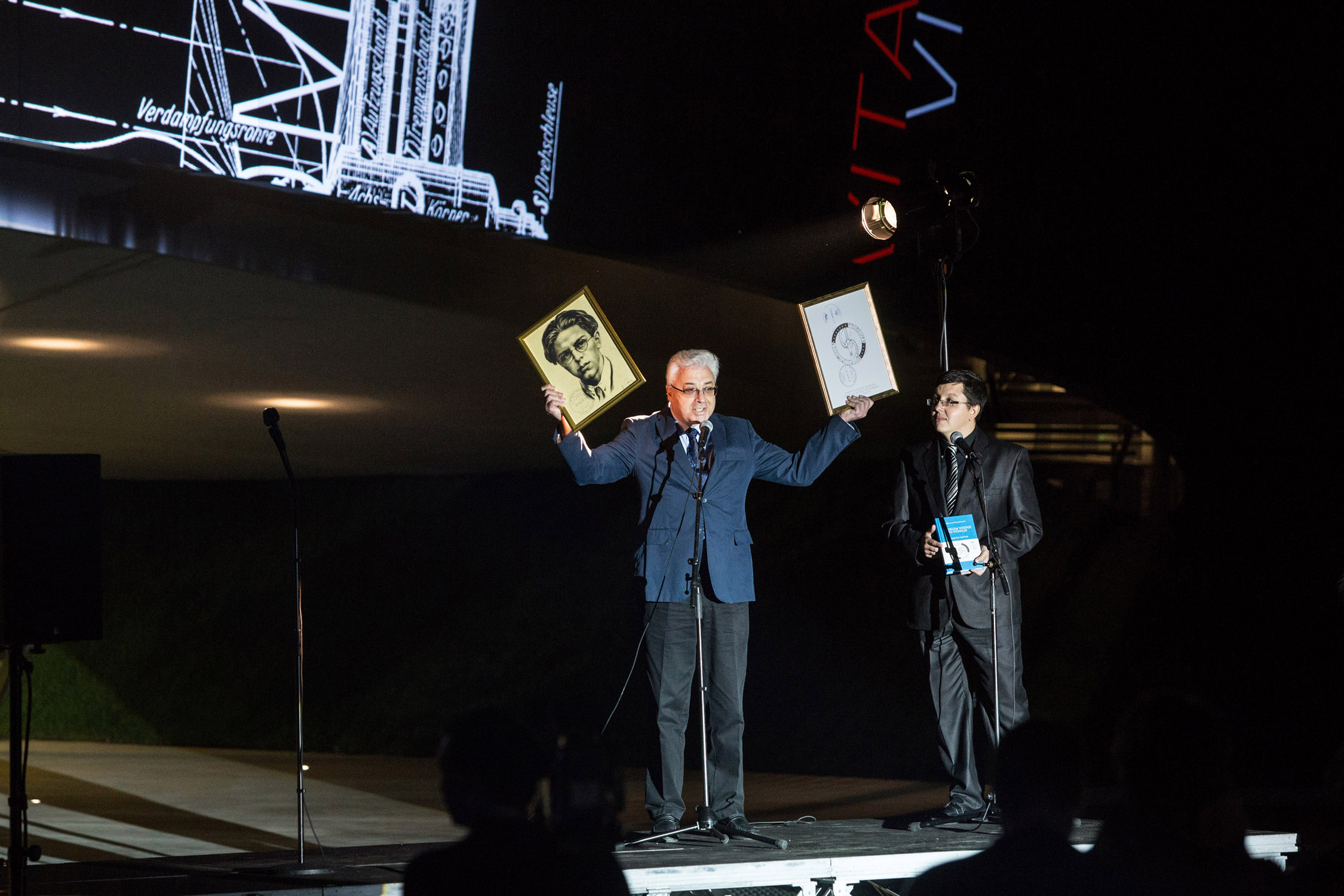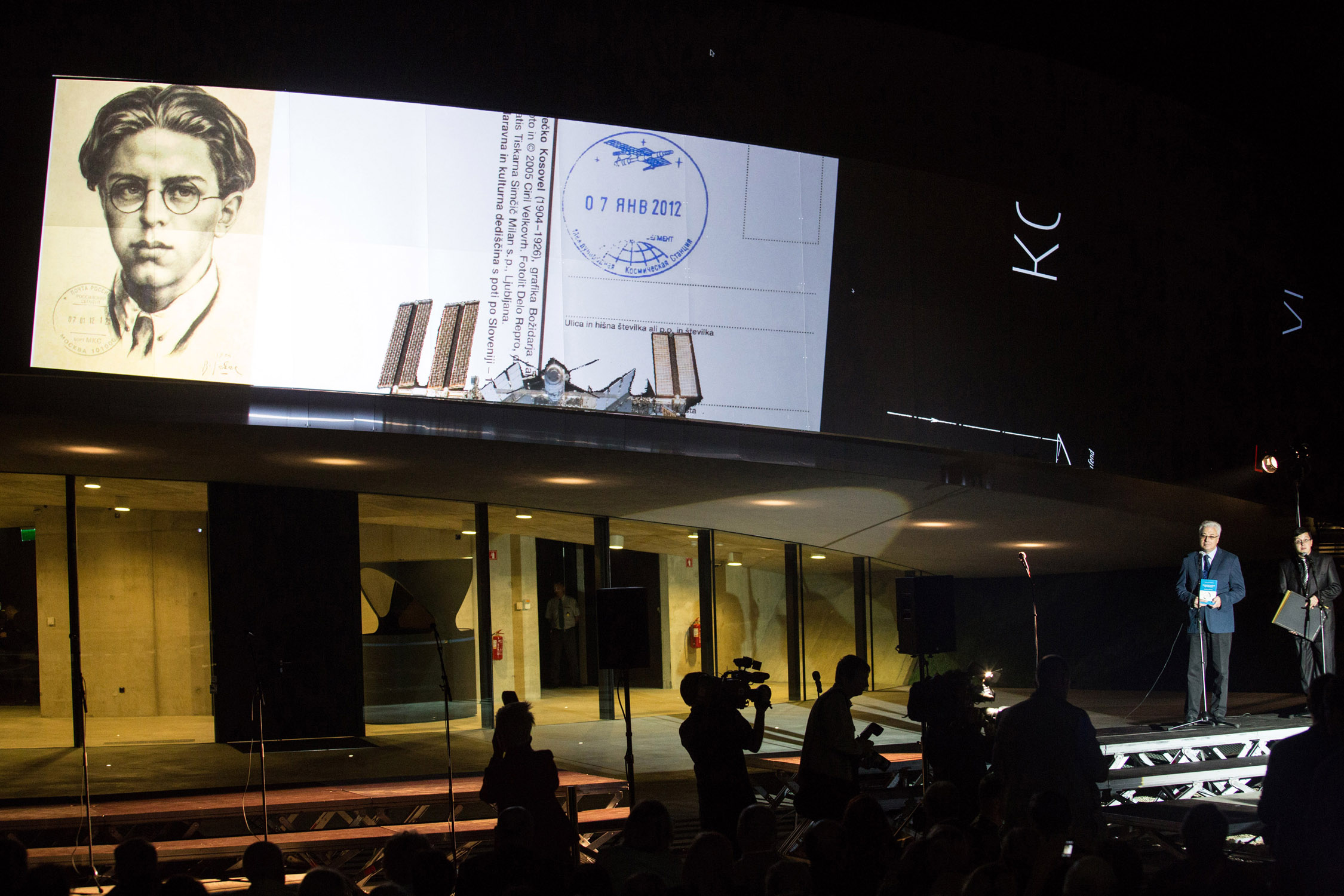From Friday 1 July 2022 until Saturday 31 December, the More-than-Planet exhibition at Old Observatory Leiden showcases five cutting-edge international artists who set off to work in the domain of space. They create alternative visuals, installations and critical narratives to show that other side of the earth. In doing so, the transdisciplinary artworks in the More-than-Planet exhibition aim to spark a discussion about how technologies and the drivers behind their development can help reduce environmental stress. The exhibition in Oude Sterrewacht can be visited until 31 December.
Supre:organism
Outer space has presented itself as a contemporary condition where humanness is getting redefined. Are human beings in outer space human, technological or ecological? Are they there for their own sake, or to represent others? Supre:organismpresents work of artists that confront the established deterministic cosmology with a multiplicity of artistic perspectives in order to expand the understanding of human non-terrestrial becoming.
OOTC'19
Outer space’s abstract appearance leads to a desire for its systemisation in order to conceptualise and normativize the human position within it. This includes epistemological “systems of thought” and ontologies of “natural systems”. Their architectural construction is by necessity defined by perspectival characterisation, with core differentiation of belonging(s) and position(s).
STARTS Talk at ESA/ESTEC
The STARTS Talk at ESA/ESTEC was organised on 15th May 2019 by ILEWG, Waag and European Commission. The main objectives for the event were to explore links between ESA space research activities related to arts and the STARTS programme, to identify benefits and impact of recent art-science collaborations, to showcase artistic, creative and critical methods of research and innovation, and to address human and social challenges in a holistic manner.
Supre:organism residency days
The Supre:organism residency of Waag’s AI Lab in collaboration with the International Lunar Exploration Working Group (ILEWG) aims to engage artistic perspectives on understanding living materiality in outer space with use of emerging AI technologies.
Outer space has presented itself as a contemporary condition where humanness is being redefined in the absence of arts, humanities and social studies. With this open call, we provide an opportunity to expand established human space activities with a multiplicity of artistic perspectives to broaden the understanding of human non-terrestrial becoming. With the Supre:organism residency, we mark the 50th anniversary of the first Moon landing and 100th anniversary of Kazimir Malevich’s gaze into life emerging from the sentinel canvas, the cosmos:
"... all technical organisms are nothing but small satellites—the entire living world is ready to fly into space and take a special position. For each such satellite is fitted with reason and able to live its own life." – Kazimir Malevich, UNOVIS, Vitebsk, December 15, 1920
KOSMICA Parliament
KOSMICA Parliament is a series of performative events featuring the artistic community of Ars Electronica and their views about human activities in outer space. Inside a space capsule, artists will be welcome to give a performative statement about the errors of space exploration. This kaleidoscope of critical views will create the arena to collectively reflect on these issues and inspire new modes of human becoming in outer space.
OOTC'18
With the Out of the Cradle ‘2018 we aim to contribute to the existing outer space activities more citizen-centred perspectives. We are going to develop a public interface between established domains, interdisciplinary missions to advocate non established humanistic and social studies beyond Earth’s atmosphere and showcase human space activities as a cultural and not only technological venture.
Anticipated outcomes:
Socially relevant outer space scenarios and visions from which more focused, dedicated and relevant activities could be developed.
The community of aligned institutions and individuals with the capacity to collaborate on mutual projects.
Identified topics for future cooperation.
Participants: Roberto Cassar (Leiden University), Angelo Vermeulen (TU Delſt), Bernard Foing (ESTEC, Noordwijk) , Claudia Mignone (ESTEC, Noordwijk), Evelina Domnitch & Dmitry Gelfand (Synergetica), Marteijn Leinweber (Space Business Innovation Center Noordwijk), Thieme Hennis (Astroplant, Border Sessions) and Wael Bazzi (Exosphere, museum of cosmology).
Early on it was recognised that we should redefine or at least rethink the citizens and the humankind. As we are leaving the Earth, who do ‘we’ represent in outer space—only citizens or humanity, or “life” as such? If it is so, then the technological approach should be updated with more ecological, based on the quality of relations and not just capabilities of an individual “species”. That also brings to the question of the language and the mutual code, since existing social and mathematical language would also require a biosemiotic update that is in its becoming through the evolution of cybernetics.
On more concrete but related matter OotC’18 recognised a need for co-creation platforms that would support inclusive citizen-centred activities, like Astroplant project, developed as an ESA citizen science project, but evolving into a composite spin-off, fusing scientific, societal and educational impact.
Platforms as hybrid networks provide development of connected capacities, facilities and resources— and as such a recognition of the cultural impact of outer space activities.
Space Sight @AKV/St.Joost
A Space Sight course is a joint effort of AKV|St.Joost, Waag and ESA-ESTEC to introduce creative and critical approach to earth observation. The course provides the students an understanding of an earth observation technologies, creative and critical methodologies for their use and hands-on opportunity to work with space data, space technologies and space experts.
Lenses
This is your Project Description. It’s a great place to describe your Project in more detail. Add images and provide visitors with essential information about your work, including the project length, partnerships or any successful outcomes. To hook new potential clients, show how your work has provided solutions for past clients.
Space Sight @Medium
The Icons of the Non-Visible exhibition aspires to elucidate the influence of space research and exploration on culture, in order to open the way for epistemological reflections of images of the non-visible.
In 2015-2016, KSEVT tackled the question “How is the non-visible visible?” in collaboration with experts from the natural sciences, the humanities, and art, by highlighting certain cases in in the framework of exhibitions and expert conventions.
Astronautics in Art
Programme:
Baturin Yu. M. (Russia), Welcome speech
Turšič M. (Slovenia), Habiton: interrelation between Supremus 56 and Satellite Art
Živadinov D. (Slovenia), Astronautics and Post-gravitational Art
Parkhomenko D. Yu. (Russia), Culturalization of Space vs Cosmisation of Culture: the perspectives of artists and scientists collaborations anticipating life of human being in outerspace.
Turkina O. V. (Russia), The Imaginary Space Travels
Stepanova A. N. (Russia), Actuality TV - programmes from the manned Mars delivery mission
Ivanova L. V. (Russia), First Space Library: "Salute" - "Mir" - ISS
Baturin Yu. M. (Russia), Space photos and their parallels to Pieces of Art
ASTRONAUTICS IN ART, International scientific symposium / 17. 11. 2015 / Moscow, Memorial Museum of Astronautics / S. I. Vavilov Institute for the History of Science and Technology at the Russian Academy of Sciences / Cultural Centre of European Space Technologies (KSEVT, Slovenia) / Memorial Museum of Astronautics (Moscow, Russia) / Laboratoria Art&Science Space (Moscow, Russia) / K. E. Tsiolkovsky Russian Academy of Astronautics / Russian Association of Space Explorers
OOTC'15/ Habiton
Icons of Non-visible
OOTC'14/ Observer
The Observer conference is organized by Faculty of Liberal Arts and Science (Smolny college), St. Petersburg State University in collaboration with KSEVT (Cultural Centre of European Space Technologies, Slovenia). The Observer conference will focus on rethinking of human position within the technological, social and natural processes which enables the understanding of the deep and close surrounding – Space and Earth. The understanding of Space has throughout history shaped different knowledge and Sciences. The conference will bring together worldwide experts from different practices – Science, Arts and Humanities – to study how the overcoming of old and new models reforms the technological and social condition of the Observer.
Supre:architecture
While the closer reaches of space are quite populated already, the conditions for human life there remain unsuitable, and without adequate devices and objects even deadly. The material manifestation of human presence in space is architecture at its most fundamental: as an articulation of surroundings and as a functional form of habitation in weightlessness.
OOTC'14/ The Topology of Non-human Agents
Space exploration programs bring forth - alongside with the recent biotechnological and digital advances - the consideration that a universe populated with artificial life might soon become a force recalibrating the human condition. Autonomous and self-sustaining systems based on the principle of life kindle alternative paradigms through which the exploration of space and its informational colonization might be approached. Attempts to engage the wider space community in a discourse with various developmental practices complementary to existing programmes is resulting in flying laboratories intended to test and validate new techniques and proposals on low-cost and robust satellites. The Arts and humanities are emerging as key mental articulators of thoughts on the ontology of the human in outer space and engage in projects aiding the construction and manifestation of data from and intended for space transmission. Invited speakers will, from their respective fields of expertise, illuminate contemporary topics associated with human presence in space.
OOTC'13/ Observer
28th November 2013
Methodologists
Miha Turšič (SLO) / Welcome
Jean-Claude Marcadé (FRA), Russian Suprematism and the Conquest of the Sun
Deborah Douglas (USA), MIT and the culture of scientific instruments
Wendy Coones (USA/AT), Culture of the Lynxes - The history & development and future directions of observation practices
Introduction to Out of the Cradle
Miha Turšič (SLO), director of KSEVT, introduction of the Out of the Cradle platform, conference series and partners
29th November 2013
Culturalization of Space: Arts and Humanities practices and approaches/
Ewen Chardronnet (FRA), Association of Autonomous Astronauts
Kristina Pranjić (SLO), Postgravityart
Marko Peljhan (SLO), MAKROLAB / MIR
Daniela de Paulis (IT/NL), Astronomers without borders
Konrad Becker (AT), world-information.net
Angelo Vermuelen (BE), Seeker / NASA/ESA
Ale De La Puente (MX)
Alejo Duque (Colombia/Swiss), Movimiento de los Sin Satelite
Trevor Paglen (USA)
Joe Davis (USA)
Annnick Bureaud (FRA)
Out of the Cradle Lounge/ Open discussion on future activities
moderated by Miha Turšič (SLO)
Lounge
dj C-drík aka Kirdec
Interview with Dragan Živadinov (Zavod Delak), Marko Peljhan (Zavod Atol), Deborah Douglas (USA, MIT) and Jean-Claude Marchadé (FR, the Institute of Aesthetics of Arts and Technologies). Interviewed by: Bojan Anđelković, Matej Janković, Medard Kržišnik and Jaka Špiler Duration: 30 minutes RTV Študent, November 2013.
